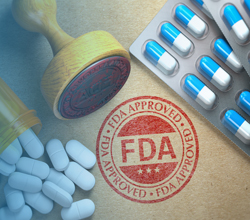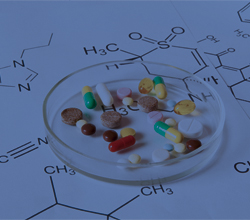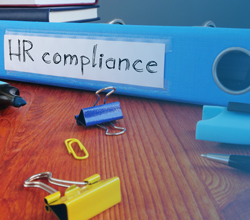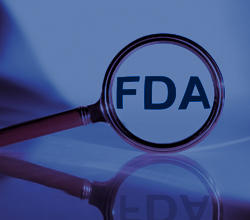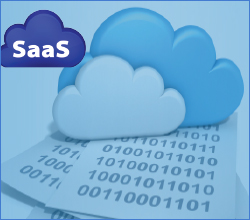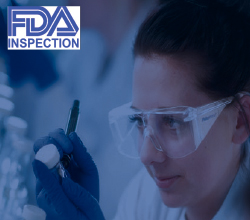
Preapproval Inspection and Submission to the FDA
 John E Lincoln
John E Lincoln
 90 Min
90 Min
Product Id: 706998
This webinar is intended to provide guidance regarding the FDA program to approve an NDA or an ANDA or PMA only if the methods used in, and the facilities and controls used for, the manufacture, processing, packing, and testing of the drug or Class III device are found adequate to ensure and preserve the drug's identity, strength, quality, and purity, or the device's safety and performance.

Supplier Management with the new Medical Device Regulation EU MDR 745/2017
 Frank Stein
Frank Stein
 60 Mins
60 Mins
Product Id: 706068
In this webinar, learn how to implement the changes required by the new regulation EU MDR 745/2017 in your current quality management system in a simple and quick way. The information in this course is vital to your passing the Quality Management Audit by your certification company or notified body.

How to conduct an effective BSA Audit
 Justin Muscolino
Justin Muscolino
 60 min
60 min
Product Id: 706979
BSA rules and regulations must be followed by financial institutions. Although financial institutions have been managing BSA operations in accordance with regulatory requirements, the shift to BSA audits has become increasingly important. Regulators look to the financial institution for confirmation and proof that BSA operations are being audited properly to ensure that BSA efforts are implemented and managed properly.

Good Documentation Practice and Record Keeping Regulations (FDA & EMA)
 Dr. Afsaneh Motamed Khorasani
Dr. Afsaneh Motamed Khorasani
 60 Min
60 Min
Product Id: 705583
Good documentation Practices (GDP) is an essential factor that needs to be closely followed by the personnel in any regulated environment as a process for a successful project completion including observations of unanticipated responses that are required to be accurately recorded and verified. This 60-min Webinar covers the essentials of GDP, its definition, purpose, and importance. Then expands on general rules and principles of GDP (US & EU), General tips for Laboratory Notebook documentation and finally discussing GDP enforcement by regulatory bodies in different countries with some examples of FDA citations.

HVAC and GMP Environmental Control - for Pharmaceutical Cleanrooms
 Roger Cowan
Roger Cowan
 60 Min
60 Min
Product Id: 703831
Environmental control of pharmaceutical cleanrooms is essential to the manufacture of a quality product. Control of such conditions as airborne particulate, microorganisms, temperature, humidity, differential pressure, airflow, air velocity and personnel is crucial to protect the product from contamination. Therefore, the design, validation and ongoing monitoring of a cleanroom HVAC system are necessary to assure the quality and safety of the pharmaceutical product. This training program will offer attendees a proper understanding of the cleanroom environment and its testing requirements according to international regulatory standards from a compliance perspective.

Conducting an effective Regulatory Examination
 Justin Muscolino
Justin Muscolino
 60 Min
60 Min
Product Id: 706983
Are regulatory examinations keeping you up at night? In the world of financial institutions, staying ahead of the regulatory curve is more critical than ever.

US, EU and Japan GMP Requirements: Practical ICH Area Differences, Healthcare Authority Inspection Focus
 Robert J Russell
Robert J Russell
 90 Min
90 Min
Product Id: 702029
This ICH GMP 90-minute webinar will provide your company the opportunity for comprehensive understanding of ICH Drug / Biologic GMP and the nuances and differences between the three main ICH triumvirate regions (U.S. EU and Japan). It will cover the key areas of how ICH was established, it’s goals and objectives, expectations of the healthcare authorities involved and practical differences that you will experience in a GMP inspection of a facility by FDA, an EU Competent Authority or PMDA.

GAMP Data Integrity 21 CFR Part 11 Training Course
 Kelly Thomas
Kelly Thomas
 90 Min
90 Min
Product Id: 706912
This course will cover data integrity, electronic records and signatures, and the compliant operation of GxP Computerized Systems to provide the tools and techniques to implement proper controls for data to ensure the integrity and validity of the information throughout the data lifecycle.

The Complexity and Interplay Among ADAAA, FMLA, and Worker's Comp (WC) - How Do They Work Together, or Not?
 Dr. Susan Strauss
Dr. Susan Strauss
 90 Min
90 Min
Product Id: 704959
The webinar training will address ADAAA, FMLA, and Worker’s Comp laws that HR is responsible for upholding. When the laws are not followed, it increases the liability for the organization and interferes with a fair and equitable work environment for employees.

Finished Pharmaceuticals CGMPs
 John E Lincoln
John E Lincoln
 90 Min
90 Min
Product Id: 706990
This webinar is intended to provide guidance regarding good manufacturing practice (GMP) for the manufacturing of finished pharmaceuticals under an appropriate system for managing quality. It is also intended to help ensure that The final drug product meets the quality and purity characteristics that they purport, or are represented, to possess.

Good Clinical Practice (GCP) Basics for GMP Experts
 David L Chesney
David L Chesney
 90 Min
90 Min
Product Id: 706991
This webinar presents an introduction to fundamental GCP concepts for personnel who are experienced in GMP but new to the GCP topic. It is designed to help adapt principles learned in a GMP context to GCP operations, pointing out the similarities and differences between Quality Assurance management in each of these disciplines.

NEW Nacha Operating Rules Changes for 2024 PLUS Changes Coming in 2026 – Part 2
 Donna K Olheiser
Donna K Olheiser
 90 Min
90 Min
Product Id: 706981
Part 2 – Effective March 20, 2026, two Rule amendments (Fraud Monitoring – Phase 1) – monitoring for Faud (as part of a larger Risk Management package) intended to reduce the incidence of successful fraud attempts and improve the recovery of funds after frauds have occurred.

FFIEC BSA/AML Examination Manual: What Compliance Officers Really Need to Know?
 Doug Keipper
Doug Keipper
 60 Min
60 Min
Product Id: 703792
This webinar will go through every section of the revised FFIEC Bank Secrecy Act/Anti-Money Laundering Examination Manual to highlight changes and areas where banks should review their internal policies, processes and procedures for compliance. Understanding these changes will keep you prepared and updated for your next BSA/AML examination.

Gaining and Re-establishing Control of Your Cleanroom
 Joy McElroy
Joy McElroy
 60 Min
60 Min
Product Id: 705317
This webinar will focus on the critical steps in starting up a new cleanroom operation and releasing it for manufacturing. It includes a case study-based approach to dealing with excursion events and establishing control of the cleanroom after a worst case event.

NEW Nacha Operating Rules Changes for 2024 PLUS Changes Coming in 2026 - Part 1
 Donna K Olheiser
Donna K Olheiser
 90 mins
90 mins
Product Id: 706973
Part 1 -- NEW changes to the Nacha Operating Rules include "minor" Rules changes - effective June 21, 2024 (no major impact on operations but a must know to remain in compliance - by knowing the things they are clarifying in the minor Rule change topics). In addition, Risk Management Topics - effective Oct 1, 2024 (covering topics that were proposed before but now really happening) - such as "Expanded use of Return Reason Codes R06 and R17"; "funds availability exceptions" and "Unauthorized Return changes for the RDFI with timing of the WSUD and returning the unauthorized transaction".

US FDA's Cybersecurity and NIST Framework Requirementsfor Networks
 John E Lincoln
John E Lincoln
 90 Min
90 Min
Product Id: 706971
Cybersecurity is the art of protecting networks, devices, and data from unauthorized access or criminal use. It is the practice of ensuring confidentiality, integrity, and availability of information, and is a rapidly growing problem for industry.

Annual Current Good Manufacturing Practices (cGMP) Training
 Kelly Thomas
Kelly Thomas
 60 Mins
60 Mins
Product Id: 705422
This webinar provides a basic understanding and fundamental principles of Current Good Manufacturing Practices and will fulfill the requirement of personnel involved in cGMP must have documented training of current Good Manufacturing Practices. This session will focus on the FDC Act and 21 CFR federal regulations as applied to cGMP.

ACH Government Payment Processing - Handling Death Notification Entries (DNEs) and Reclamations
 Donna K Olheiser
Donna K Olheiser
 90 Min
90 Min
Product Id: 704540
This 90-minute session will provide the details on what is different and how the Federal Government has adopted the NACHA Operating Rules and what the exceptions to those Rules incorporate for the Federal Government. You will learn what the Green Book is and how this valuable on-line tool will help you with processing DNE’s and Government Reclamations.

Assess Impact For Supplier Change Notices
 Alan M Golden
Alan M Golden
 60 Min
60 Min
Product Id: 706344
This webinar will discuss dealing with supplier change notices. Regulatory agencies have the expectation that a manufacturer has control over its supply chain and dealing with changes to that supply chain can be challenging.

The eSTAR Submission Program for 510(k)s, IDEs, De Novos, PMAs, and Q-Submissions
 John E Lincoln
John E Lincoln
 90 Mins
90 Mins
Product Id: 706968
The regulation and control of new or substantially changed medical devices for sale in the US is based on the 510(k), PMA or DeNovo submission process; 510(k)s now can only be submitted to the FDA under the eSTAR (electronic Submission Template And Resource) Portal. Other submissions will be phased in using new guidance templates as they become available.

